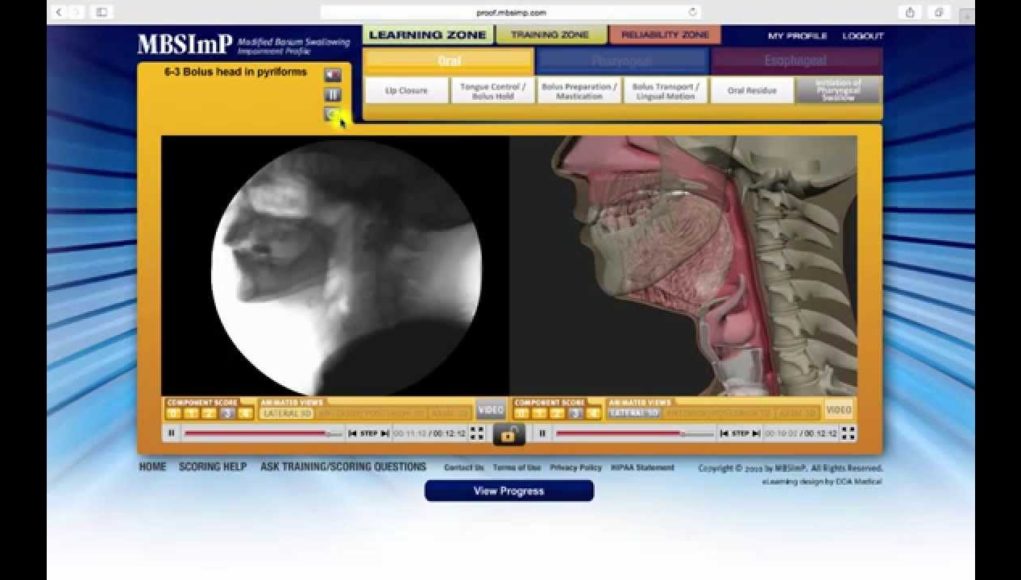Introduction
We probably receive a private message, email or post at least once a week asking this very question. The question is posted numerous times throughout social media by new and seasoned clinicians alike. This question and the term “MBSImP” must be one of the most highly searched terms on Dysphagia Cafe. Many may have different words of wisdom on how to pass the training. One thing is for certain, many clinicians look forward to the day where we can all look at the results of an MBS and feel confident that the findings are consistent, specific and accurate.
What is MBSImP?
MBSImP is an evidence-based standardization of the MBS Study in adults. The information on the Northern Speech Services website really is worth a thousand words, as it speaks volumes: “Standardizing the MBSS: Evidence, rather than opinion, should guide clinical decision-making.” While many will have different opinions about how to tackle the training, here is one thoughtful post from the Dysphagia Cafe Facebook Page and shared on the MBSImP Facebook Page:
“I have taken it and also have had about 140 grad students take it as part of their training. It was harder for me initially because I had to retrain my eye and pay close attention to the operational definitions so I didn’t use my previously learned approach. Also I tried to do it in a weekend and that backfired big time. Most students pass the first or second try with the reliability zone, but I can say that they put in a lot of hours over at least 12 weeks. We have all found that asking for specific help from NSS has been useful, too. The common thread among students who haven’t done as well has been that they were trying to do too much all at once. Slow and steady, with time to rest the eyes and mind, and lots of repeated referral to the operational definitions, over several weeks – that’s been the way most seem to do best.”
-Kate Krival
Why is the training so rigorous?
We are very fortunate to have an upcoming article by Dr. Bonnie Martin-Harris and Dr. Kendrea Focht which will provide further insight into the MBSImP and the importance of standardization training in swallowing physiology. I leave you with a thoughtful quote from the upcoming article:
“The complexity of oropharyngeal swallowing and swallowing impairment mandates an accurate assessment that is grounded in the understanding of the physiologic swallowing mechanism, and is standardized in the protocol, interpretation, reporting, and overall communication across the continuum of care.”
My hope is that you find this upcoming article informative and encouraging as we take steps closer to standardization.





